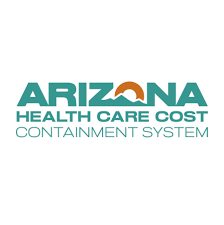In public health and health care, tracking and measuring performance isn’t just about generating numbers—it’s about accountability. For state agencies, transparency in reporting is the foundation for finding gaps, distributing resources effectively, and improving outcomes for vulnerable populations.
AHCCCS’ recent report under state law shows the power of measurement in holding agencies accountable.
The report provides some demographic, housing, and incarceration data on Arizona’s population of persons with a Serious Mental Illness (SMI), shedding light on the significant challenges they face.
For example, the report reveals that 12% of Arizona’s SMI population (7,812 individuals) experienced homelessness last year, compared to just 0.2% of the general population.
Half of those experiencing homelessness in Arizona have an SMI designation, highlighting the disproportionate burden on this population.
Housing instability isn’t the only issue. Nearly half of SMI members on the housing waitlist remained there for more than 6 months and 6.4% of the SMI population was incarcerated in the past year—a rate more than 10 times higher than that of the general public.
Reports like these force state agencies to confront hard truths and give advocates and policymakers the tools they need to spark interventions.
Without data transparency, systemic challenges can remain hidden, and meaningful improvements may never materialize.
The Transformative Potential of SB1311
Senator Miranda’s SB1311, passed in the 2024 legislative session, is a big step toward improving transparency in the metrics and outcomes for persons in Arizona with a serious mental illness.
The new law builds on the previously existing reporting requirements by mandating enhanced data collection and analysis and tying funding to specific performance benchmarks.
The First Year of reporting under SB1311 is due by December 31, 2025. Some of the outcomes required by the bill include:
- Hospitalizations and rehospitalizations;
- Screening and evaluation facility use and discharge data;
- Tracking when folks are released without treatment;
- Treatment adherence & program dropout data;
- Incarceration events;
- Rehospitalizations;
- Crisis interactions;
- Substance use;
- Employment;
- Mortality data;
- In-depth housing data including homelessness; and
- Behavioral health residential facility uses and discharge data.
SB1311: Mental Health; Oversight; Documentation
The data AHCCCS will publish next year will provide for more accountability in Arizona’s public mental health care system like minimum performance standards for housing programs serving individuals with SMI. This is critical, given the stark reality that so many SMI members spend months or years waiting for housing.
AHCCCS Tackling Housing Instability with Their New ‘H2O’ Program
The bill also emphasizes collaboration across systems. For example, it directs AHCCCS to work with the Arizona Department of Corrections to reduce incarceration rates among the SMI population.
By addressing the root causes of criminal justice involvement— like untreated mental health conditions and housing instability—SB1311 aims to provide the data needed to inform interventions that break the cycle of incarceration that disproportionately affects those with SMI.
Another benefit of the new law is its focus on equity and access, requiring agencies (AHCCCS’ Managed Care Contractors) to disaggregate data by demographic factors such as race, ethnicity, and geographic location, ensuring that disparities are found and addressed.
SB1311 also includes mandates for stakeholder engagement, requiring AHCCCS to ask for input from individuals with SMI, their families, and advocacy organizations. This ensures that reforms are informed by the voices of those most affected by the system’s shortcomings.
A Path Forward
By providing and monitoring performance we’ll be in a better position to identify gaps in the system and make necessary and targeted and systemic improvements.
These new data will also be key to informing performance metrics to hold AHCCCS, their contractors and the state legislature accountable for the performance of (and funding for) Arizona’s public behavioral health system.

